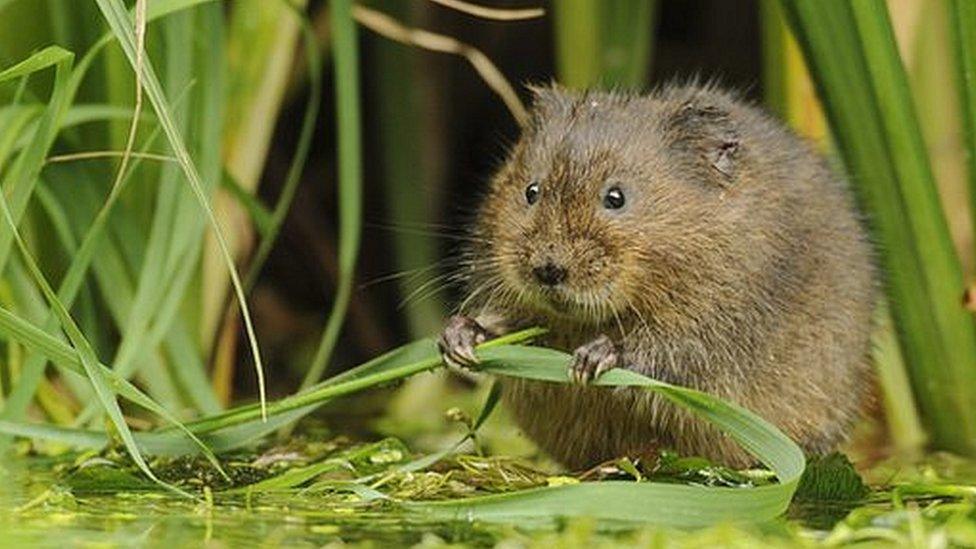Holme Dunes: Norfolk Wildlife Trust appeal for volunteer beach wardens
- Published
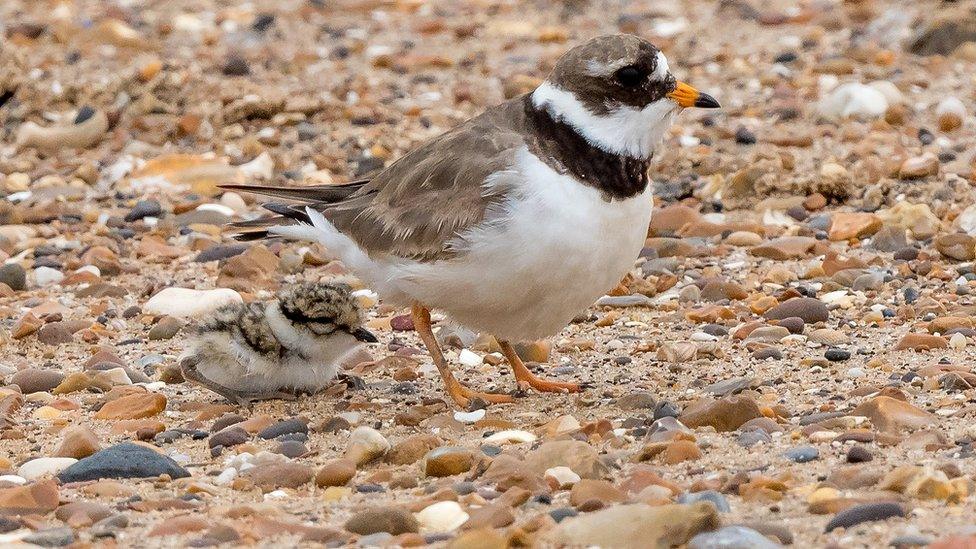
Norfolk Wildlife Trust says the population of ringed plovers has declined by 79% over 35 years
A charity is appealing for volunteer beach wardens to help support its "vital work" with rare wildlife.
Norfolk Wildlife Trust (NWT) says it needs help to monitor rare birds at Holme Dunes nature reserve.
Half of England's most threatened breeding birds nest at the reserve near Hunstanton, including ringed plover, little tern and oystercatcher.
Tori Backham, from NWT, said: "Our beach wardens act as guardians to our vulnerable beach-nesting birds."
"They support our wildlife by patrolling the beaches, helping the public to understand the importance of looking after these special species, as well as recording bird behaviour and nesting activity," she added.
"If you feel passionate about making a difference and you have some spare time to give, we'd love to hear from you."
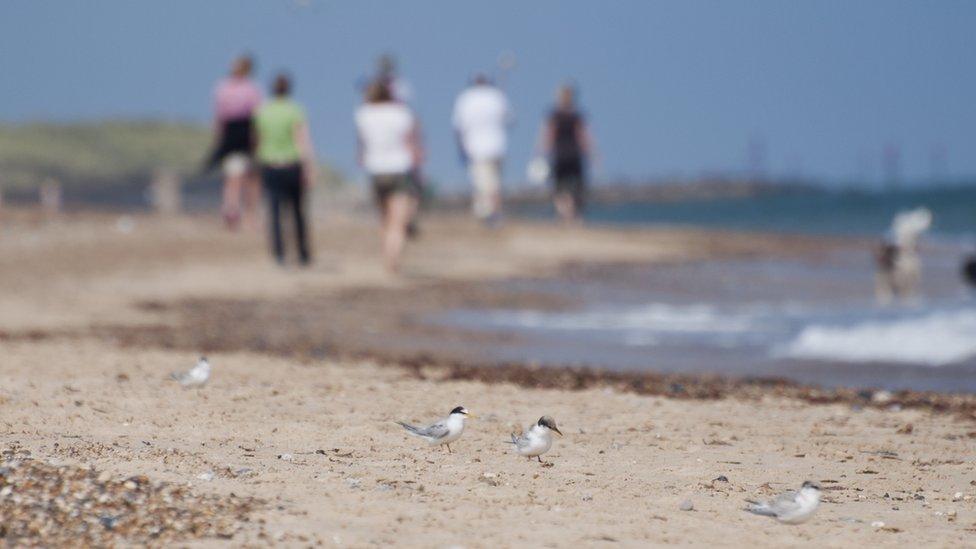
Many little tern migrate from Africa to nest at Holmes Dunes
Little terns travel from Africa to nest on the Norfolk coast and face many challenges including disturbance, rising sea levels and predators.
In 2021 almost half of the UK population (roughly 691 pairs) of these birds were attempting to nest across the North and East of Norfolk.
NWT said in the last 35 years the population of ringed plovers in Norfolk has declined by 79%, with only 123 pairs recorded in 2018.
The charity said oystercatcher numbers were also dropping, seeing them join the little tern on the amber list of conservation concern.
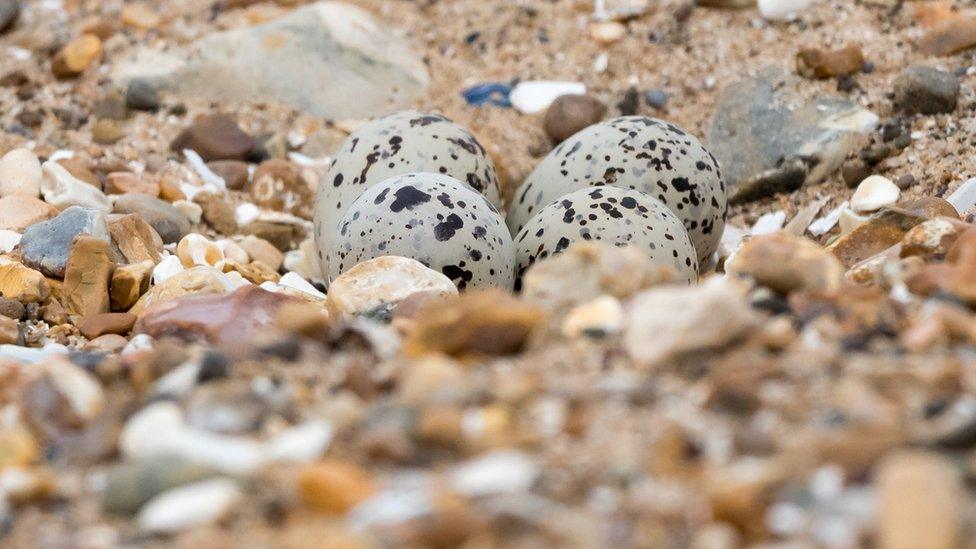
Visitors at Holme Dunes are asked to keep a distance from special fenced-off nesting areas on the beach
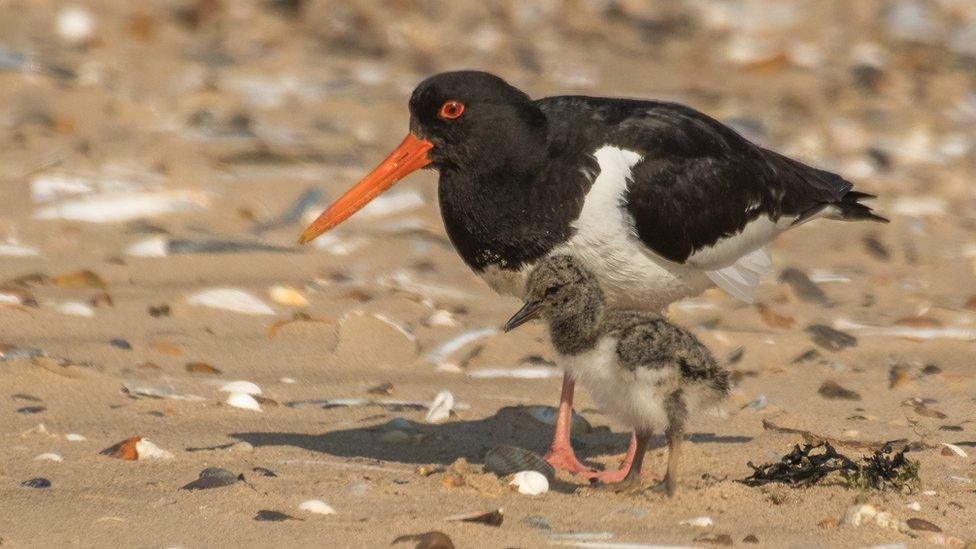
The charity said oystercatcher numbers were also dropping
Visitors at Holme Dunes are asked to keep a distance from special fenced-off nesting areas on the beach, to be vigilant for the tiny chicks that may be feeding on the shoreline, and to keep their dogs under control.
NWT was established in 1926 and manages over 50 nature reserves and other protected sites around the county.

Find BBC News: East of England on Facebook, external, Instagram, external and Twitter, external. If you have a story suggestion email eastofenglandnews@bbc.co.uk, external
Related topics
- Published16 February 2022
